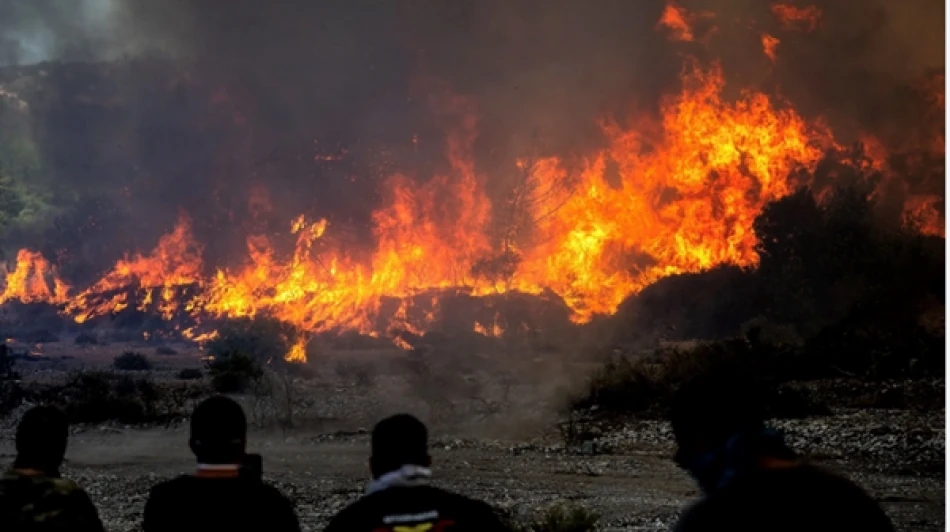
Greece Battles Massive Forest Fires: Firefighters Contain Blazes After Intense Efforts
Greece Battles Devastating Wildfires as Climate Crisis Deepens Mediterranean Fire Season
Greek emergency services have contained massive wildfires that ravaged thousands of hectares near Athens and across the country, but authorities warn that prolonged drought and powerful windstorms create conditions ripe for more destructive blazes. The fires highlight Greece's growing vulnerability to climate-driven disasters that increasingly threaten lives, property, and the nation's vital tourism economy.
Widespread Destruction Across Multiple Regions
The southeastern Athens region bore the brunt of the latest fire outbreak, with approximately 1,600 hectares of agricultural land, forests, and grasslands destroyed according to meteorological services. The scale of destruction forced authorities to evacuate numerous villages as a precautionary measure, with emergency teams rescuing around 400 people from threatened areas.
One person died on Friday when flames engulfed his remote residence, underscoring the deadly risks faced by those living in fire-prone rural areas. Dozens of homes were destroyed, and numerous animals perished as fires swept through the northeastern Peloponnese peninsula and the eastern island of Samothrace.
Emergency Response and Current Status
Greek media reported that firefighting units achieved substantial control over the situation on Samothrace by Sunday, though investigations into the fires' origins continue. The successful containment effort involved coordinated air and ground operations, reflecting lessons learned from previous devastating fire seasons that have plagued the Mediterranean nation.
Persistent Climate Threats
Civil protection officials emphasized that ongoing drought conditions combined with strong storm systems create a volatile environment for future fire outbreaks. This warning reflects a broader pattern affecting Mediterranean countries, where extended dry periods followed by extreme weather events have become increasingly common.
Greece's Growing Fire Crisis in Context
These latest fires add to Greece's mounting challenges with wildfire management, part of a regional crisis affecting Southern Europe. Countries like Spain, Italy, and Portugal have similarly grappled with increasingly severe fire seasons that strain emergency resources and threaten both rural communities and urban peripheries.
The economic implications extend beyond immediate damage costs. Greece's tourism sector, crucial to the national economy, faces recurring disruptions from fire emergencies that can deter visitors and damage the country's natural attractions. Agricultural losses also compound economic pressures on rural communities already struggling with demographic decline.
Climate Adaptation Challenges
The recurring nature of these fire emergencies highlights the urgent need for enhanced prevention strategies and climate adaptation measures. Greece, like other Mediterranean nations, must balance immediate emergency response capabilities with longer-term investments in fire-resistant infrastructure and landscape management practices designed to reduce future risks.
Most Viewed News

 Layla Al Mansoori
Layla Al Mansoori






